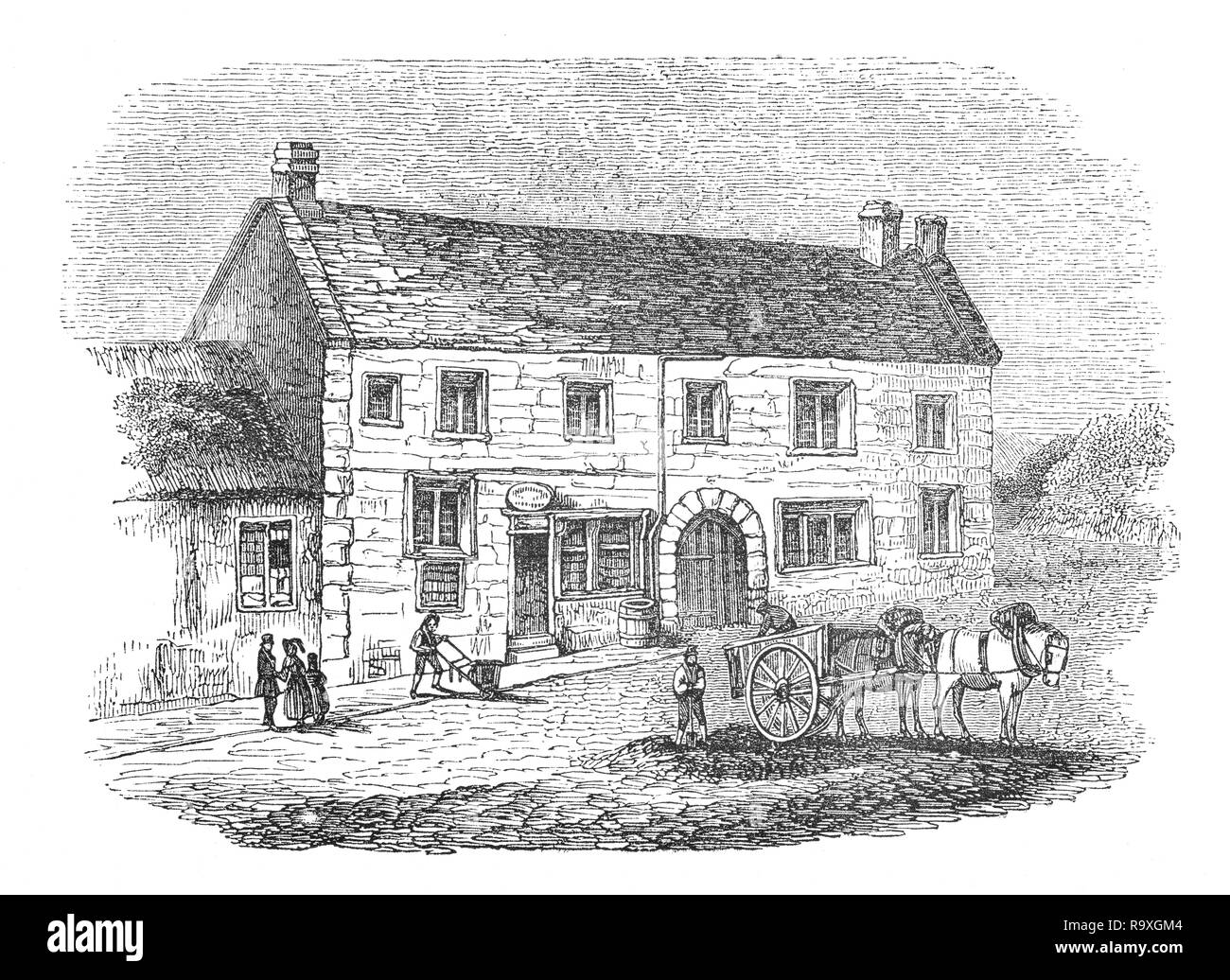The inn at Charmouth in Dorset, England, now known as Abbots House, gave shelter to the disguised, fugitive King Charles II on 22 September 1651, when he came looking for a boat to take him to France following defeat at the Battle of Worcester. A small trading ship bound for St Malo was found, and the master, Stephen Limbry, agreed to pick up the King from Charmouth beach and transport him to the ship, but just two hours before the pick up Limbry told his wife, who locked him in his room and stole his clothes to ensure he would not become involved. The following day Charles left Charmouth.

Image details
Contributor:
De Luan / Alamy Stock PhotoImage ID:
R9XGM4File size:
49.8 MB (3.4 MB Compressed download)Releases:
Model - no | Property - noDo I need a release?Dimensions:
4890 x 3560 px | 41.4 x 30.1 cm | 16.3 x 11.9 inches | 300dpiDate taken:
18 December 2018Location:
Charmouth, Dorset, EnglandMore information:
This image is a public domain image, which means either that copyright has expired in the image or the copyright holder has waived their copyright. Alamy charges you a fee for access to the high resolution copy of the image.
This image could have imperfections as it’s either historical or reportage.
The inn at Charmouth in Dorset, England, now known as Abbots House, gave shelter to the disguised fugitive King Charles II on 22 September 1651, when he came looking for a boat to take him to France following defeat at the Battle of Worcester. A small trading ship was found bound for St Malo. The master, Stephen Limbry, agreed to pick up the King from Charmouth beach and transport him to the ship, but just two hours before the pick up Limbry told his wife, who locked him in his room and stole his clothes to ensure he would not become involved. On the following day Charles left Charmouth pursued by troops, who were alerted to his presence by an employee of the inn.